Today, I want to talk about Hirokazu Kore-eda and his latest work. Because of this drama, he has been scolded for being synonymous with "nausea" and "the male gaze." This work is "The Makanai: Cooking for the Maiko House."
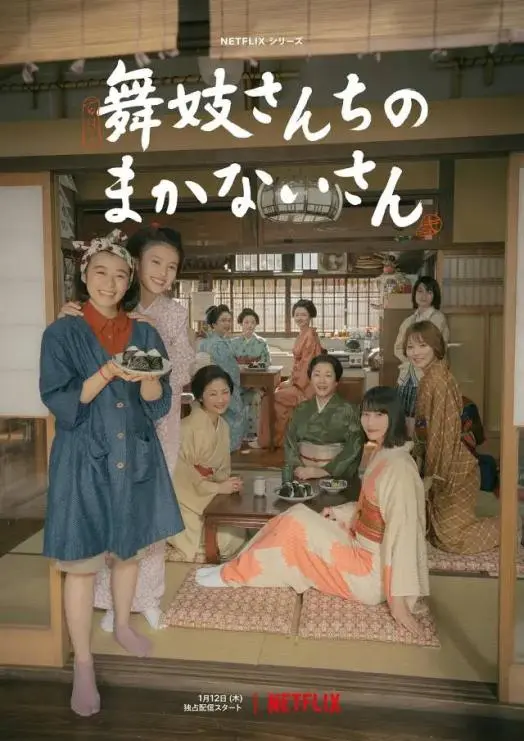
Why did the ratings continue dropping within a few days of the release? I think the problem lies in the subject matter. When Hirokazu Kore-eda describes such a controversial occupation as maiko with common peace and does not give an answer, it may become a controversy.
01 What is a geisha?
First, I want to talk about geishas. In Japan, this is a traditional performing culture. They are not sex workers. On the contrary, they have a higher social status. Their main job is to serve food and provide live performances such as dancing and singing.
The stage before becoming a geisha is called maiko. Maiko's makeup and costume are very exquisite. Beautiful kimonos, gorgeous belts, even in Kyoto today, the formal updo and beautiful hair accessories are rare scenery in modern cities.
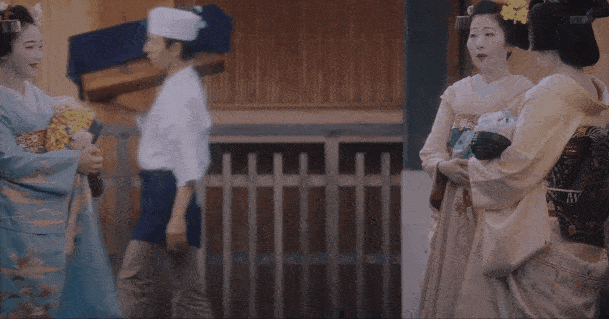
To borrow a line from the drama to describe the profession: When the geishas walk along the gravel road in kimonos and clogs, we feel like we've traveled back in time instantly.
Because of this, geisha is a career that can be said to be the dream of young girls at the bottom. The two heroines in the drama, Kiyo and Sumire, dream of staying in Kyoto and becoming geisha. In their hearts, there is no more noble and beautiful occupation.
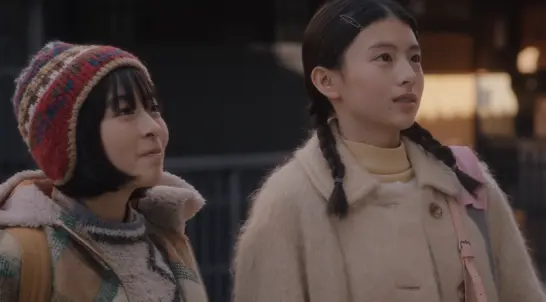
As a result, they take the bus from their hometown to Kyoto with enthusiasm, regardless of their family's worries and objections. They know that before becoming a geisha, they must first become a qualified maiko. Their destination is the largest geisha district in Kyoto.
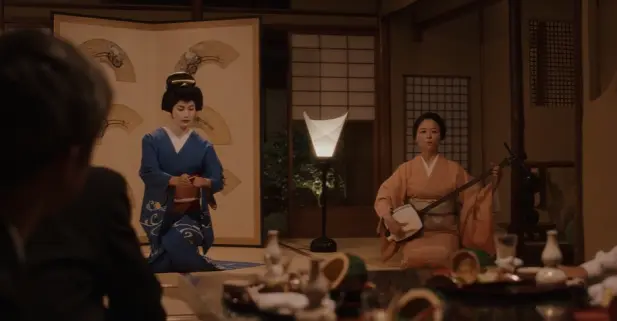
Sumire and Kiyo start their career here, but they seemingly show quite different growth trends from the first day. Sumire not only learns the rules quickly, but she also makes rapid progress in dancing and flower arranging. She is beautiful and gentle and considered a born maiko.
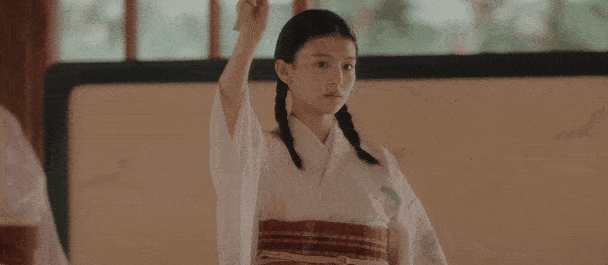
Kiyo, on the other hand, is not so lucky. She is always clumsy and considered unsuitable to be a maiko at all. But when she comes, she decides to stay with her sister in Kyoto. Should she quit because she can't become a maiko? At this time, another career related to geisha comes into her sight, a private cook who specializes in cooking for geisha and maiko. Kiyo learned to cook from her grandmother when she was young. She can also stay in Kyoto and with Sumire by becoming a cook.
From this moment on, the story of the whole drama begins to unfold in parallel. The maiko and the cook become the protagonists who pull each other. The director's intention could not be more obvious. He wants both food and beauty. On this level, Hirokazu Kore-eda shows his special skill. After all, to compare the pictures of whose films are more beautiful, who is he afraid of?
02 An Aesthetic Visual Feast
The biggest highlight of the whole drama is the pleasant visual feast, such as the snowscape of a winter town:
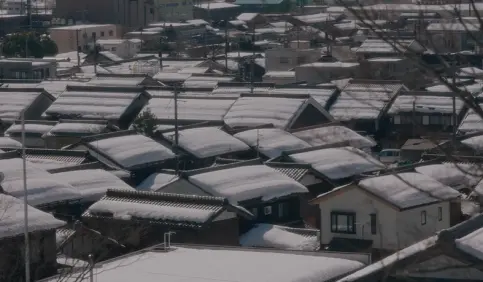
Geishas' gorgeous ornaments and sexy makeup:
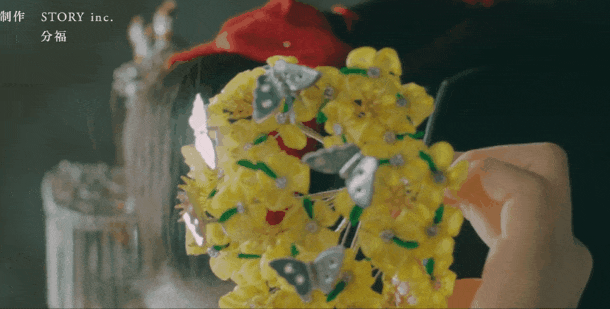
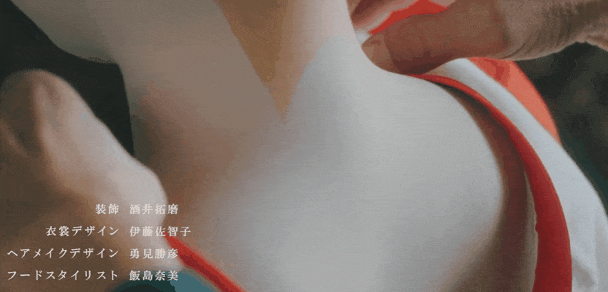
Delicious miso soup and grilled fish:
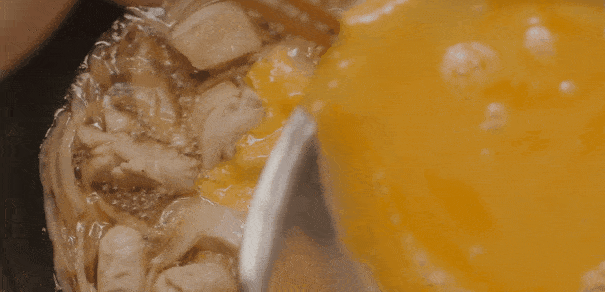
And caramel pudding and red bean soup:

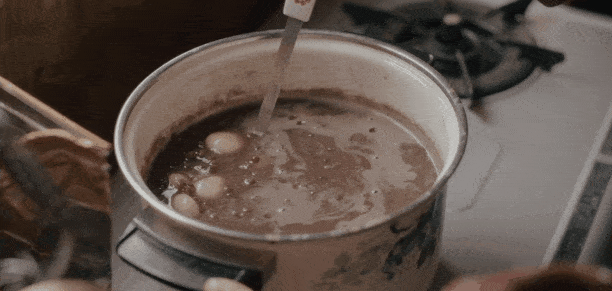
From three meals to dessert, and then from food to people, I have to say that Hirokazu Kore-eda knows the audience's aesthetic too well. In the drama, there are many scenes we have seen in his classic movies, such as eating, hanging clothes, bathing, and walking, the peace and beauty brought by trivial daily life are in line with my aesthetic. Such as the following scene looks like my favorite "Our Little Sister," where the four sisters sit together and chat.
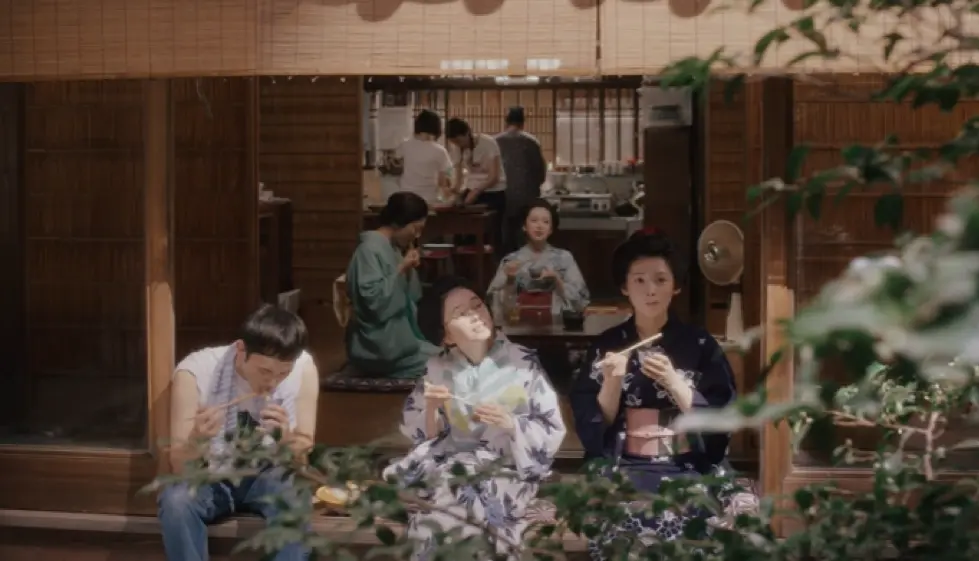
Of course, in addition to the beauty of the pictures, the story also shows us one side of the life of geishas from the perspective of the two heroines. Tradition and inheritance are one of the reasons why this industry has survived. Each geisha is like a living work of art. There is a line in the drama that touches me: This dance depicts a woman who thinks of her lover who can't accompany her. Because she sleeps alone every night, her inner loneliness grows every day. However, if you always express the element about men, the pattern of your dance will become smaller, and you must show what the audience can't see but not too much.
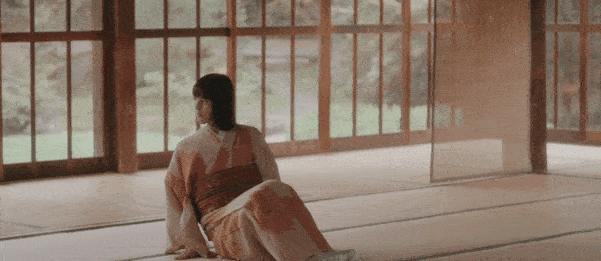
Geisha is a representative of Japanese culture, we can feel the strong Japanese atmosphere in this drama, even the magnified beauty of women and the implicit emotional expression of Natsume Sōseki's style.
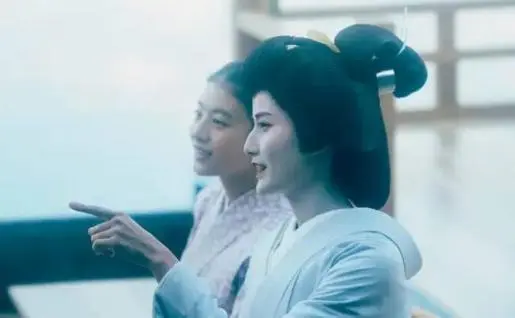
Seeing this, I believe many people have the same feeling as me. It's beautiful and poetic enough, but everything seems a little too delicate, which makes me doubt whether this is the real life of Japanese geishas. Or from the beginning, from the story to the shot, from the theme to the conception, the whole drama is just a sugar-coated fairy tale?
03 Why do I feel regretful?
After watching the whole drama, I have a strong sense that everyone knows what's going on, but they still stick to saying nothing, perhaps that's why it seems tasteless even when shooting delicious food.
It seems to have been beautifying the daily life of geishas from the beginning to the end. While the industry's dark side criticized by many people has been ignored collectively. Hirokazu Kore-eda has made some efforts. The drama is a remake of the original manga. He added some new content and sensitive industry descriptions compared to the original.
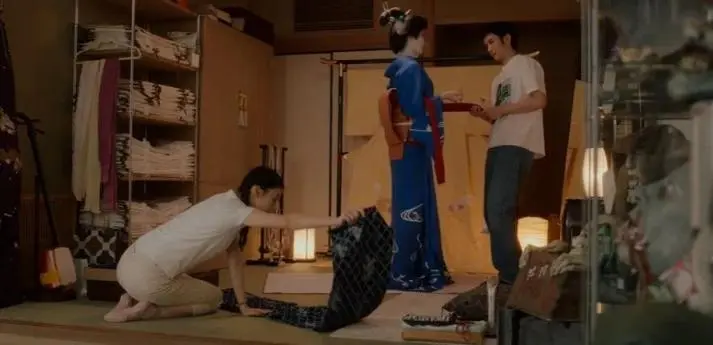
For example, under the hierarchy and discipline management, many geishas usually have little contact with the outside world, and some even have problems with basic cultural education, but are these the only problems in this industry? No, the reality is often crueler and darker, and the difference between geishas and prostitutes is the biggest controversy in the whole industry.
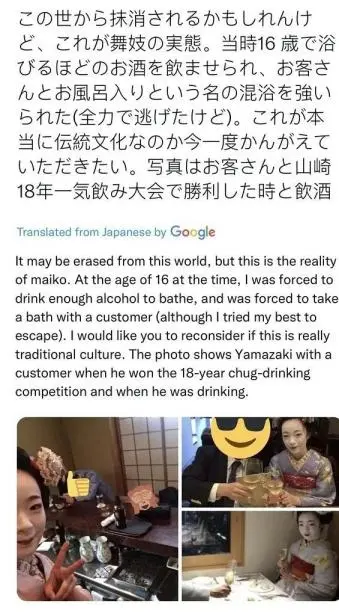
So, did Hirokazu Kore-eda talk about this? No. As for the erotic part, the explanation in the drama is that to protect the maiko, they don't need to serve wine. But the fact is that when the plot shows the work content of the maiko, they look like this:
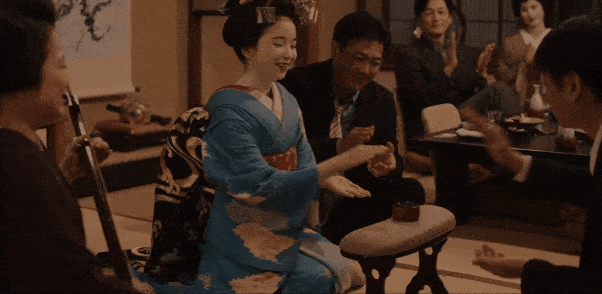
They play games with guests, dance for them, and drink with them. Hirokazu Kore-eda's efforts result in skating over the dark side, which is why I'm not satisfied with this drama.
There is no doubt that Hirokazu Kore-eda has delivered a qualified answer in narrative rhythm, picture, and aesthetic feeling with his adept style. But it makes me feel a little inexplicable regret and loss, which is far from his best level. Once, he challenged the old idea that "blood is thicker than water" with the most delicate description.
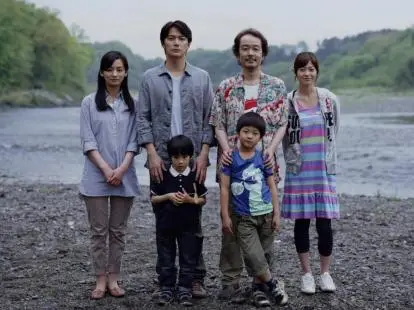
He also built a very absurd family in the eyes of others.
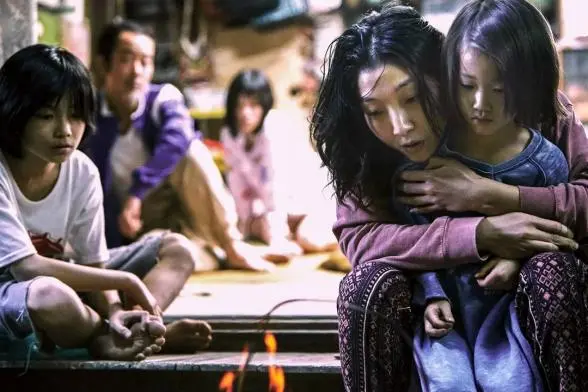
Even if he only depicted trivial daily life, he also integrated into the profound discussion of ethics and social rules.
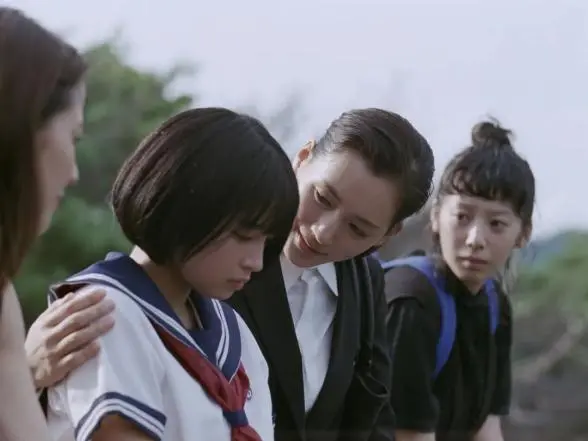
“Our Little Sister”
But now? The topic that has always been at the center of public opinion has been diluted. Are they the continuation of traditional culture or the objectification of modern women? Is it a glorified exploitation or a meaningful career?
There is a character in the drama who has been telling everyone that she wants to change the outdated and meaningless rules of the industry, but at the same time, she is enjoying the bonus brought by these "rules" all the time. The slogan of changing the geisha industry is more like a kind of echo that is willing but unable.
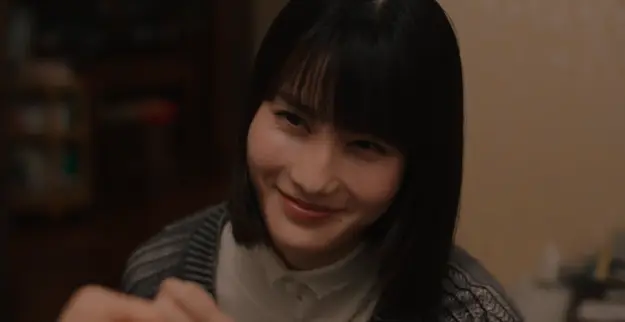
The same is true of this drama. The stories that the audience wants to see may not necessarily be pleasing and peaceful, or even painful, provoking our perception and judgment, but the meaning of their existence is to be seen and argued. It is not impossible to be beautiful, but when beauty dominates, it loses the meaning of being looked at.
Well, do you like this drama? Discuss it with me in the comments!


 Log in
Log in

No comments yet,
be the first one to comment!